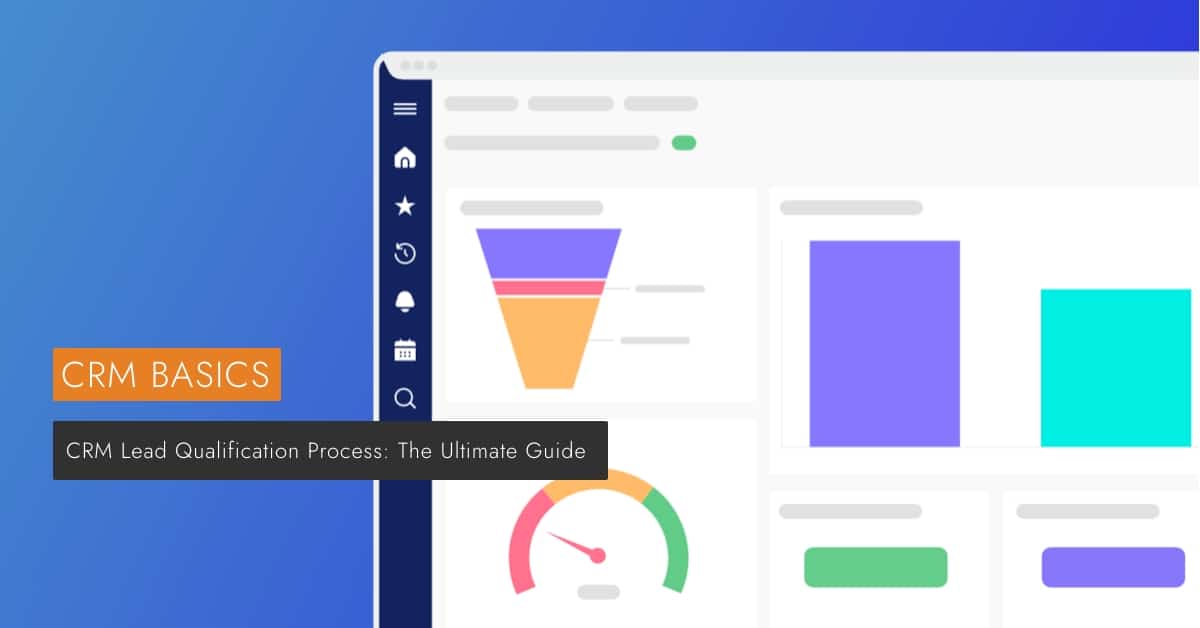CRM Lead Qualification Process: The Ultimate Guide

A lead is someone who has shown interest in your company. When new contacts are added to your CRM software, they automatically get qualified based on a set of criteria that define their likelihood of becoming paying clients.
How does lead qualifying work in a CRM, though?
In this article, we will explore vital information about the CRM lead qualification process.
Let Us Focus On Your CRM Structure
If you do not assess your CRM framework at least twice annually, it is probably out of date for your present and future demands. Almost each of the software organizations has some kind of sales automation solution in order to effectively manage their incoming leads. The majority of such businesses use CRM to keep track of sales transactions and optimize their sales pipeline.
Some CRMs are used more extensively and on the forefront of technology, while others are used outside the box and only scrape the edge of their CRM’s potential. CRMs are versatile, robust, and expandable, meaning you’ll get the most of your software when you spend time customizing it for your company’s needs..
Sales Qualification
You’d undoubtedly pay equal attention to all potential customers if you didn’t qualify your leads—only to end up with just a handful of closed deals. That’s time and effort well wasted.
Lead qualification is an important part of every successful sales process, but why?
Simply stated, sales qualification saves you time and resources by allowing you to explore the leads that are most motivated to buy your product.
Why Is it Crucial to Develop a Lead Qualification Machine?
If you’ve ever worked with sales and marketing teams that have crystal-clear lead qualification processes, you understand the impact a great sales strategy can have on your return on investment.
With the appropriate combination of sales automation, lead generation, and good, old-fashioned hard work, you may even discover that your company is generating more leads than your sales staff can accommodate. This is indeed a fantastic issue to deal with.
At that point, the advantages of lead scoring begin to grow, as time wasted immediately corresponds to wasted opportunities. A well-managed sales process starts to have a noticeable impact on earnings.
The Lead Qualification Process
The lead qualification process is initiated with a collection of leads that your marketing, sales, procurement, and production departments have created. There are various different kinds of leads:
- Unqualified Leads have not been nourished enough to be transferred to a sales force, and are considered ineligible.
- MQLs (Marketing Qualified Leads) are leads who are open for receiving marketing messages such as email marketing campaigns, content offerings, and so on.
- SQLs (Sales Qualified Leads) are leads that seem to be confident to talk with the sales representative and commence the selling process.
- PQLs (Product Qualified Leads) are leads that have shown a significant demand for a product by signing up for a free version or starting a premium subscription.
- CQLs (Conversion Qualified Leads) are leads that have expressed their interest by filling out a website form or hitting a call-to-action button.
Such leads are scored based on specific criteria or are routed into a lead-qualification framework. The leads are then separated into qualifying and ineligible leads. After that, the qualifying leads are put into the sales funnel. Disqualified leads are routed through a mentoring process in the hopes of warming them up to your brand and turning them into qualified leads.
Cheer on Your Lead Scoring Model
Continuous improvement can be achieved by adjusting your strategy.
Feedback from customers is crucial. Your team can utilize your CRM reporting tool to track lead behaviours and demographics to improve your lead nurturing strategy and sales processes.
Conclusion
Effective qualifying is critical to sales success. Your capacity to identify qualified leads will significantly increase your ROI and improve your marketing strategies.
